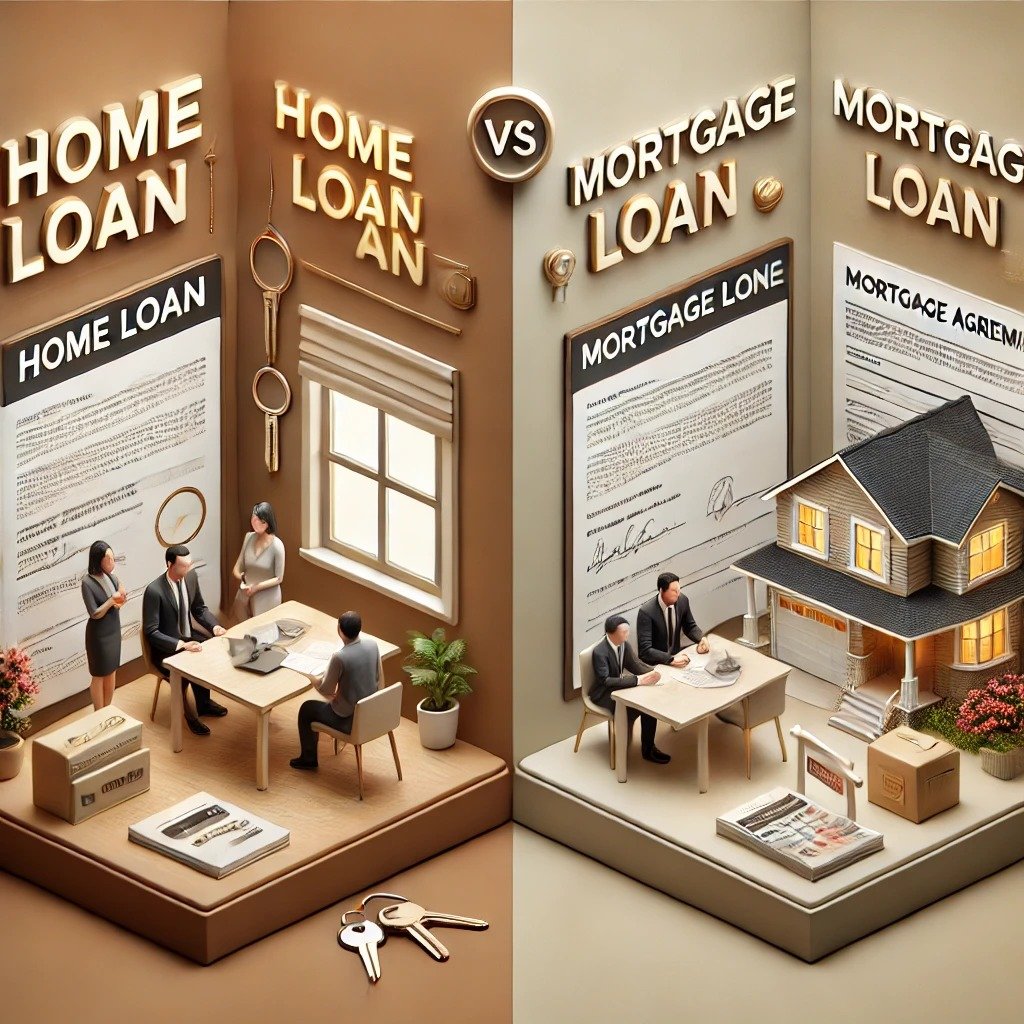When discussing mortgage and home loan, many people get confused due to similar terminology. A mortgage is a financial contract involving real estate that serves as collateral for a loan. On the other hand, a home loan is a specific type of mortgage that is primarily designed for purchasing residential properties. Essentially, you can think of a home loan as a subset of mortgages, as it is focused on buying homes.
Understanding the differences between these terms is crucial for loan borrowers. Misunderstanding these terms can lead to problems. A mortgage may cover a broader range of properties, while a home loan is intended solely for new homeowners looking to buy property. This distinction helps to clarify the terms and their practice in the real world, ensuring that borrowers can make informed decisions without the confusion that often arises from these misconceptions.
Home Loan Interest Rates
The interest rates on home loans can vary significantly based on several factors, including your credit score, loan amount, and lender policies. Typically, there are two main types of interest rates: fixed-rate and adjustable-rate mortgages (ARMs). A fixed-rate mortgage maintains the same interest rate for the entire loan term, providing consistent monthly payments. In contrast, an adjustable-rate mortgage starts with a lower interest rate that may fluctuate after an initial period, potentially leading to higher payments down the line.
When applying for a home loan, it’s essential to compare interest rates from different lenders. Even a slight difference in the rate can significantly impact the total cost of the loan over its duration. It’s advisable to shop around and seek financial advice to secure the most favorable terms.
About Mortgage Loans
A mortgage is a form of security interest rather than a loan in itself. When you secure a home loan, a mortgage creates a legal obligation between you (the borrower or mortgagor) and the lender (the mortgagee). This agreement grants the lender the right to claim the property if the borrower defaults on the loan. In essence, while you own the property, the lender has a legal stake in it until the loan is fully repaid.
Most commonly, mortgages apply to real estate. However, other items can be mortgaged as well; for example, personal property like vehicles might be included under a chattel mortgage. Understanding these concepts can clarify the responsibilities involved in homeownership and borrowing.

Benefits of Mortgage Loans
Mortgage loans offer several advantages for buyers. They enable individuals to acquire homes without paying the entire price upfront. Instead, borrowers can spread the payments over many years, making homeownership accessible for many. Additionally, interest payments on mortgages may be tax-deductible, providing further financial benefits.
Another significant advantage of a mortgage is the opportunity to build equity. As you pay down your loan, you increase your ownership stake in the property. This equity can later be tapped into for various financial needs, such as home renovations or education expenses, making it a valuable asset over time.
What Are the Different Types of Home Loans?
When exploring options, it’s essential to know the different types of home loans available. The most common types include conventional loans, FHA loans, and VA loans. Conventional loans are not insured by the government and often require a higher credit score. FHA loans, backed by the Federal Housing Administration, are suitable for first-time buyers and those with lower credit scores. VA loans, available to veterans and active military members, offer favorable terms and no down payment.
Fixed Rate Mortgage
A fixed-rate mortgage is one of the most straightforward types of home loans. As the name suggests, the interest rate remains constant throughout the life of the loan. This predictability helps borrowers budget their monthly payments effectively, as they know exactly what to expect over time.
Fixed-rate mortgages are typically available in various term lengths, such as 15, 20, or 30 years. Choosing the right term depends on your financial situation and long-term plans. A shorter term usually means higher monthly payments but less interest paid overall, while a longer term offers lower payments but may result in paying more interest in the long run.
Adjustable Rate Mortgage
An adjustable-rate mortgage (ARM) can be appealing for those seeking lower initial payments. With an ARM, the interest rate is usually lower than that of a fixed-rate mortgage during the initial period, which can range from a few months to several years. After this period, the interest rate adjusts periodically based on market conditions, which could lead to higher payments over time.
While ARMs can save money in the short term, it’s crucial to consider your long-term plans. If you plan to stay in your home for many years, the potential for increased payments could be a significant drawback. Careful consideration of your financial situation and future plans is necessary when choosing an ARM.
FAQS:
Is It Worth Getting a Mortgage Broker?
Hiring a mortgage broker can be beneficial as they have extensive market knowledge and can help you find the best loan options tailored to your financial needs. They save you time by comparing lenders and securing favorable rates.
Why Should First Home Buyers Use a Mortgage Adviser?
First-time buyers benefit from a mortgage adviser’s expertise. They guide you through the loan process, help you understand your options, and simplify paperwork, making it easier to secure a mortgage.
What Questions Should You Ask a Mortgage Broker?
Before choosing a mortgage broker, ask about their fees, experience, and the lenders they work with. This information will help you assess their suitability for your needs.
Why Choose a Mortgage Broker?
Opting for a mortgage broker streamlines the home-buying process. They have access to multiple lenders and can negotiate better terms on your behalf, making them a valuable resource.
What Are the Deposit Requirements for Purchasing Property?
Deposit requirements vary by lender and loan type. While 20% is common, some programs allow lower deposits. Understanding these requirements is crucial for budgeting.
What You Need to Know as a First-Time Home Buyer
As a first-time buyer, research loan options, calculate your budget, and prepare for additional costs like closing fees. Being informed is essential for navigating the home-buying process successfully.
